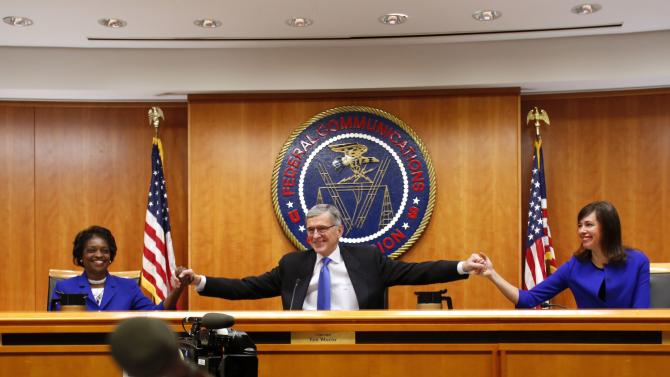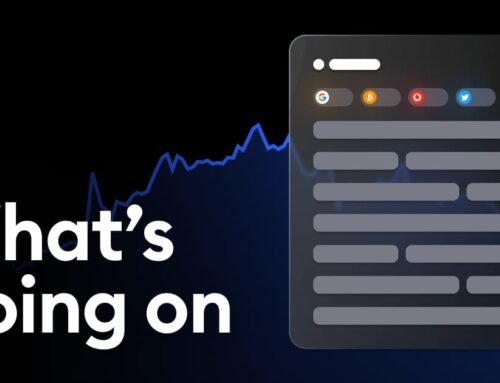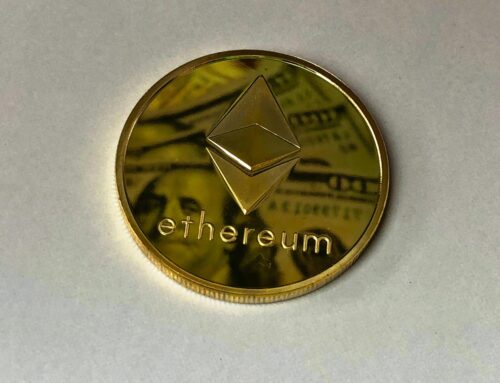FCC adopts net neutrality rules to ban Internet discrimination
February 26, 2015
New rules from the Federal Communications Commission adopted on a 3-2 vote will prohibit Internet service providers like Comcast (CMCSA) and Verizon Communications (VZ) from discriminating against any web site or online service. That means sites like Netflix (NFLX) or Google’s (GOOGL) YouTube won’t have to pay extra fees or face sluggish connections with their users. And new sites and services will be able to reach everyone on the Internet on the same terms as the big players.
Courts have struck down earlier net neutrality efforts, saying the FCC lacked authority to impose such rules. So this time around, the FCC chose to categorize high-speed Internet service as a telecommunications service. Consumers have long been guaranteed the right to call any phone they number they desire and phone companies have to treat all calls equally.
The agency heard from Chad Dickerson, CEO of the crafts sales web site Etsy, before the vote.
“Without strong rules to prevent discrimination online, the innovation economy would suffer,” Dickerson said. “We charge only 20 cents to list an item on Etsy, and take only 3.5% of every transaction. We couldn’t afford to pay for priority access to consumers, yet we know delays of milliseconds have a direct and long term impact on revenue.”
Cable and telecom companies say congestion is due to the Internet companies sending more data. Higher fees are needed to cover the cost of building more capacity, they say.
Many companies that do business online had feared that Internet service providers would be able to squeeze them for increasingly higher fees to reach consumers. Netflix last year agreed to pay Comcast for faster access after its subscribers experienced slow downs. The problem arises because consumers can’t easily switch Internet service providers – most have only one choice – if they become dissatisfied.
The new rules, which will apply to both wired and wireless Internet connections, include several major restrictions on Internet service providers. They may not slow down or block access to legal content, applications or services. They also may not create “fast lanes,” speeding up some traffic in return for additional fees.
“We are here to ensure that there is only one Internet, where applications, new products, ideas and points of view have an equal chance of being seen and heard,” Commissioner Mignon Clyburn said. “We are here because we want to enable those with deep pockets as well as those with empty pockets the same opportunities to succeed.”
The FCC would not regulate the price of Internet services under the new rules and would not impose any new taxes or government-mandated fees. Nonetheless, opponents said they feared price regulations and new taxes would come eventually, further discouraging investment.
Two Republican commissioners, along with cable and telephone companies, blasted the new rules, warning that they might curb their investment in expanding Internet service and lead to higher prices for consumers. Internet service shouldn’t be regulated under 1930s era telephone rules, they argued.
“The Internet has become a powerful force for freedom, here and around the world,” Ajit Pai, one of the two dissenters, said. “So it is sad to witness this morning the FCC’s unprecedented attempts to replace that freedom with government control. It shouldn’t be this way.”
FCC Chairman Tom Wheeler had been pursuing a more modest net neutrality plan last year untilPresident Obama came out in favor of the broader, telephone-based approach. Millions of consumers buffeted the FCC with comments in favor of strong net neutrality rules after comedian John Oliver offered a lengthy rant explaining the issue on his HBO television show
Search
RECENT PRESS RELEASES
Related Post






